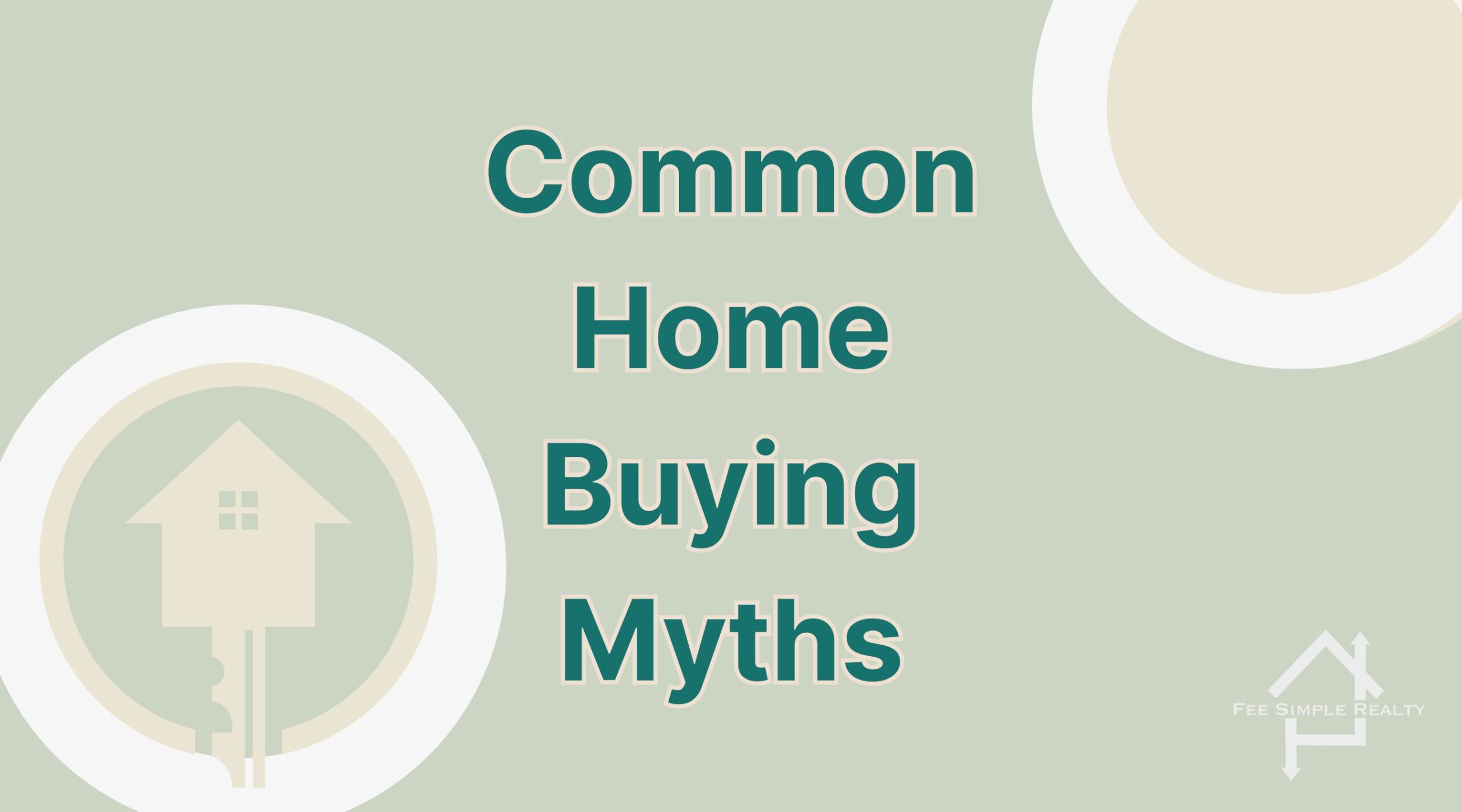Home Buying Myths Debunked: What You Really Need to Know
The home buying process can be complex, and with so much information out there, it’s easy to fall for common myths. Believing in these misconceptions can lead to missed opportunities or unnecessary anxiety. In this post, we’ll debunk some of the most common home buying myths and give you the facts you need to make informed decisions. Now lets get started with home buying myths debunked…
Overview: Common Home Buying Myths
Key Myths:
- You Must Have Perfect Credit to Buy a Home
- Renting is Always Cheaper Than Buying
- You Need to Find the Perfect Home Before Getting Pre-Approved
- The Asking Price is the Final Price
- You Don’t Need an Agent if You’re Buying
Detailed Breakdown: Debunking Home Buying Myths
1. Myth: You Must Have Perfect Credit to Buy a Home
Fact: You don’t need perfect credit to get a mortgage.
In-Depth Analysis: While a high credit score can certainly help you secure better mortgage terms, having less-than-perfect credit doesn’t mean you’re locked out of homeownership. Many lenders offer programs for buyers with lower credit scores, such as FHA loans, which require a minimum score of around 580. Even conventional loans can sometimes be obtained with credit scores in the mid-600s. What matters most is understanding your credit and working with a lender who can find the best options for your situation.
Takeaway: Don’t assume you can’t buy a home due to credit—explore loan options and work on improving your score if needed.
2. Myth: Renting is Always Cheaper Than Buying
Fact: In many cases, owning a home can be more cost-effective in the long run.
In-Depth Analysis: While renting may seem cheaper in the short term, buying a home can often save you money in the long run. With fixed-rate mortgages, your monthly payment stays the same, while rent often increases over time. Plus, homeownership builds equity—essentially a form of savings—that you don’t get with renting. Additionally, tax benefits like mortgage interest deductions can make homeownership even more affordable.
Takeaway: Homeownership can be a sound financial investment that builds equity and may save you money over time.
3. Myth: You Need to Find the Perfect Home Before Getting Pre-Approved
Fact: Pre-approval should happen before you start house hunting.
In-Depth Analysis: Many first-time buyers believe they need to find the perfect home first and then seek financing. In reality, getting pre-approved should be one of your first steps in the home buying process. Pre-approval lets you know how much you can afford, ensures sellers take your offer seriously, and speeds up the buying process. Without pre-approval, you risk falling in love with a home only to find out it’s out of your price range or missing out on a competitive listing because your financing isn’t in order.
Takeaway: Get pre-approved early to understand your budget and be ready to act quickly when you find the right home.
4. Myth: The Asking Price is the Final Price
Fact: There’s often room for negotiation in the home buying process.
In-Depth Analysis: The asking price is just a starting point, not the final price. In a buyer’s market, sellers may be willing to accept an offer below asking price, especially if the property has been on the market for a while. Even in competitive markets, negotiations can happen over factors like repairs, closing costs, and contingencies. Working with a skilled real estate agent can help you identify areas where you might negotiate a better deal.
Takeaway: Don’t be afraid to negotiate—the asking price is rarely the final word.
5. Myth: You Don’t Need an Agent if You’re Buying
Fact: A buyer’s agent can save you time, money, and stress.
In-Depth Analysis: Some buyers think they can save money by going through the process alone, but a real estate agent provides valuable expertise. Buyer’s agents are typically paid by the seller, so there’s little to no cost to you. Agents have deep knowledge of the market, can negotiate on your behalf, and help guide you through inspections, appraisals, and the paperwork-heavy closing process. Their expertise can be particularly valuable in competitive markets or complex transactions.
Takeaway: Using a buyer’s agent can simplify the process and often comes at no direct cost to you.
Conclusion
Home buying is one of the biggest financial decisions you’ll make, and navigating it based on facts—not myths—is essential. By debunking common home buying myths, you can approach the process with confidence, knowing what’s true and what’s not. Whether it’s understanding credit requirements, the benefits of pre-approval, or the role of an agent, being informed will help you make smarter, more strategic decisions in your home buying journey.
Contact us today or visit our Instagram | Facebook .
